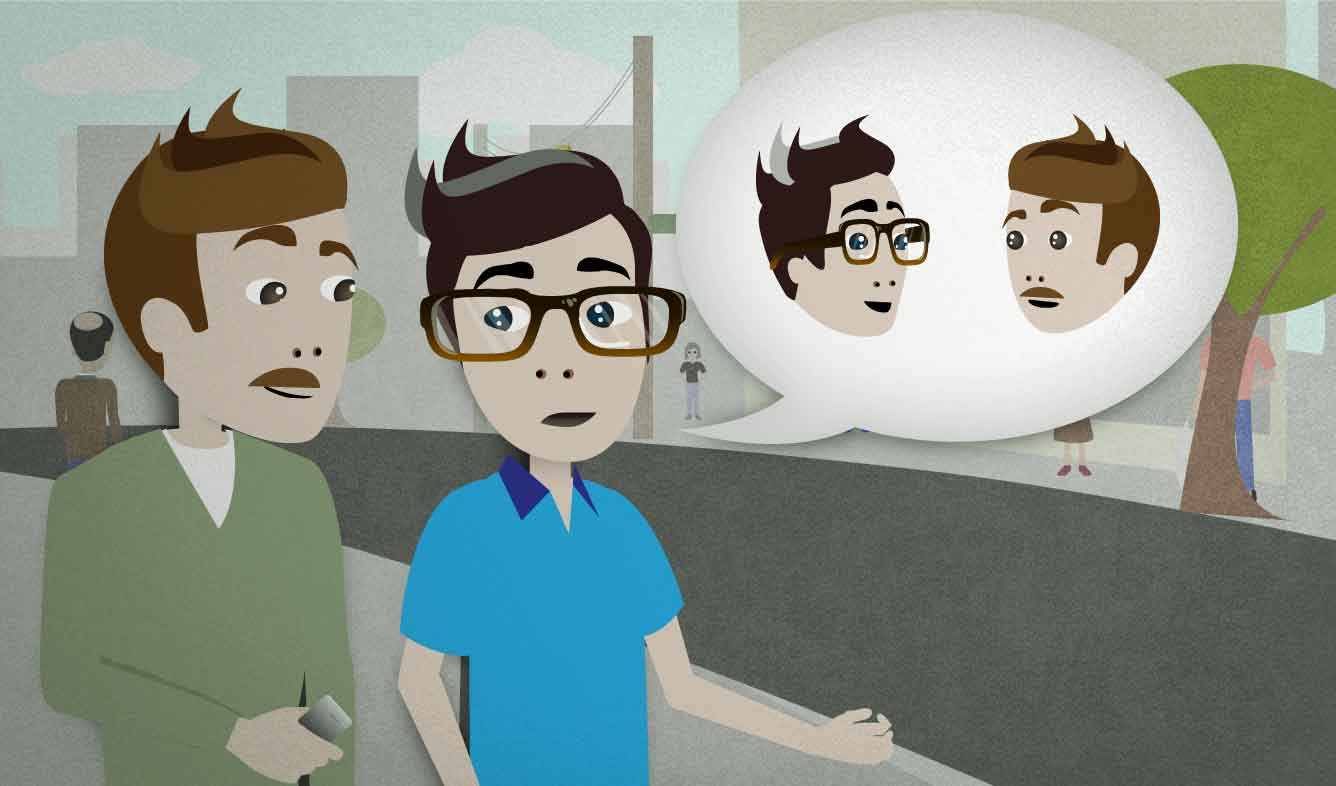“You can't beat face-to-face communication, you know?”
You and a friend are having a discussion. You're talking about the way that young people tend to prefer text messages, email, and social media instead of direct conversations. You say this to tell your friend that you think direct communication is much better.
You can't beat face-to-face communication, you know?
Want Video and Sound? Follow us on YouTube

You can't beat (something)
"You can't beat ___" means "___ is the best!" For example:
When it's hot outside and you want to relax, you can't beat a nice, cold beer.
The word "beat" here is used in the sense of beating someone in a competition. If something is clearly the best, that means that you "can't beat" it.
You might also see this expression used in the form "___ can't be beat". For example, in a television commercial:
Our low prices can't be beat!
face-to-face communication
"Face-to-face communication" means talking to someone directly, instead of through e-mail, text messages, telephone calls, passing messages to friends, or other indirect ways of communicating.
"Face-to-face" carries a positive meaning. Most people believe it is the best way to communicate with other people. You can use this part of the phrase in other ways, like:
It's so great to finally meet you face-to-face!
I've spoken with him face-to-face a few times, but mostly we communicate through instant messages or texting.
"Face-to-face" is similar to "in person". The differences between them are very small and probably not that important, but the phrase "in person communication" sounds a little strange. An example in which you can use "in person" but not "face-to-face" is:
I'll wait and give it to him in person.
you know?
Some English speakers, especially younger ones, use "you know?" on the end of their sentences. There's not a lot of meaning to it, but people use it when they want the listener to agree with the feeling or emotion of what they're saying. For example:
In this example, someone doesn't want to go to a party, but she feels like she has to. She wants the listener to agree with that feeling, so she says "you know?" at the end of the sentence. Another example:
There are some people who over-use "you know" and put it in almost half of their sentences. It doesn't sound very intelligent when you do this.
When someone who's speaking to you says "you know?", it's good to nod your head or say something like "Yeah."
